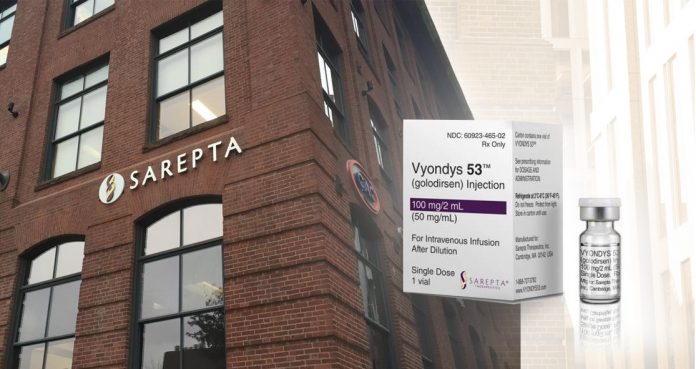The U.S. Food and Drug Administration (FDA) issued a Complete Response Letter (CRL) to Sarepta Therapeutics in August 2019 over its golodirsen (Vyondys 53) for the treatment of Duchenne muscular dystrophy (DMD). However, in December, the FDA approved the drug.
CEO of Sarepta Therapeutics Dough Ingram said that the FDA rejected the drug because of concerns about the risk of infection and kidney toxicity.
Declining to release the actual CRL, Ingram said, “That might not look like we’re being as respectful as we’d like to be,” assuring that he had not misrepresented the CRL.
Recently, the FDA released the CRL on its website. Written by the director of the FDA’s CDER’s Office of Drug Evaluation, Ellis Unger, the CRL brings up the potential toxicities of the drug and raises questions about the drug’s safety and efficacy.
The CRL says, “The 6-minute walk data from Study 4053-101 are not discussed herein, but they show progressive loss of physical function in essentially all boys.”
“Moreover, there is no correlation between maintenance of physical performance and the magnitude of truncated dystrophin production, further suggesting that if there is indeed a clinical effect of golodirsen, the effect size is small,” added Unger.
The letter discusses the infections and renal toxicity, stating, “Both are potentially life-threatening, and the latter [renal toxicity] is difficult or impossible to monitor.”
The release of this letter had raised questions about why the FDA decided to approve the drug several months after rejection. It also raised questions about why Sarepta failed to run a trial over its Exondys 51 (eteplirsen) for DMD, which got FDA approval in 2016.
DMD, a progressive muscle-wasting disease, is caused by mutations in the dystrophin gene, which causes death in early adulthood.
The FDA is requiring Sarepta to conduct a confirmatory clinical trial for Vyondys 53. Sarepta says it will wrap up the trial by 2024.
In the meantime, the FDA has still been waiting for Sarepta to publish its confirmatory trial for Exondys 51, which was approved in 2016. Unger wrote, “Given that you have established a standard paradigm and design for these types of studies, given that you have relationships with a number of DMD referral centers, and given that some 469 patients have received commercial eteplirsen, it is necessary to ask why you have not initiated your required confirmatory study with due diligence.”





















